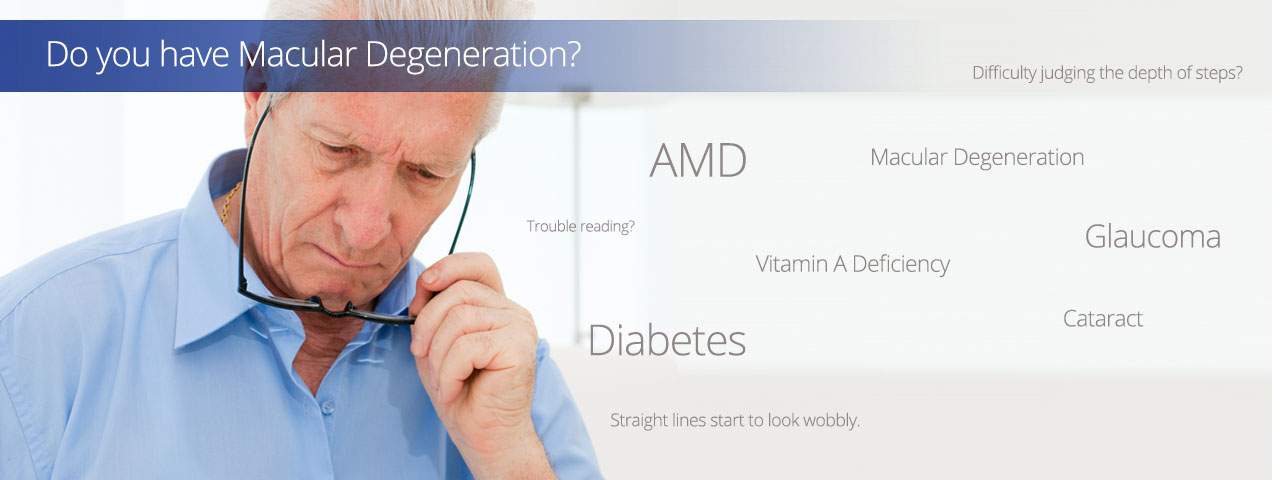
What Is Age Related Macular Degeneration or ARMD?
The macula on the retina provides sharp, central vision. The breakdown of the macula is a disease called macular degeneration and can be serious. Untreated macular degeneration is one of the leading causes of blindness in those over 65 years old.
While researchers have not yet discovered a cure for age-related macular degeneration (ARMD), there are treatment options that prevent the disease from progressing to blindness, and in some cases, they can even improve vision. It’s important to have an open discussion with your low vision eye doctor about the risks and limitations of ARMD treatments.
Types of Macular Degeneration:
There are 2 basic types of ARMD, the wet form and the dry form.
- Dry macular degeneration is considered the less aggressive form of ARMD. It typically progresses much more slowly, and the level of eyesight damage is less severe. Dry ARMD is detected during routine eye exams, which is why it’s important to have yearly testing. Treating Dry AMD often involves high doses of zinc and antioxidants which have been shown to slow disease progression.
- Wet macular degeneration is the more severe form of ARMD. Call us to book an emergency eye doctor’s appointment if you experience a sudden worsening of blurry central vision. Wet ARMD occurs when there is abnormal blood vessel growth (angiogenesis), and leakage, which can cause scar tissue to develop. Treatments include laser surgery, injecting light sensitive dyes, or AMD medication injected directly into the eye to inhibit angiogenesis.
Learn More About ARMD
ARMD is an age related eye disease that runs in families, and is a leading cause of blindness in our aging population. There is no cure for this ocular disease, and ARMD related vision loss cannot usually be recovered. There are treatments, and preventative measures that can be taken, if detected early, so routine eye exams are essential.
- Call us at (219) 836-7800 to set up your appointment.
